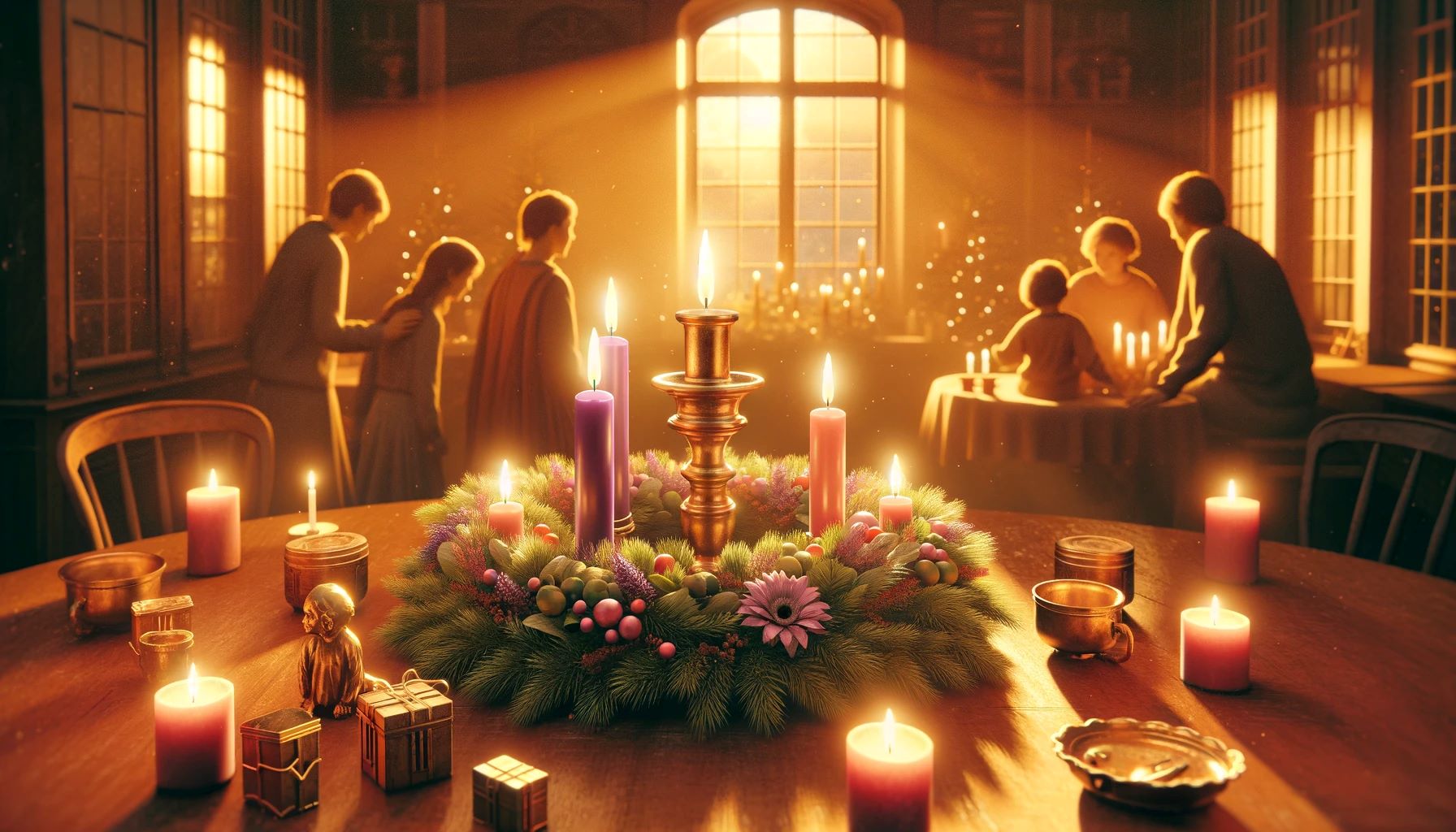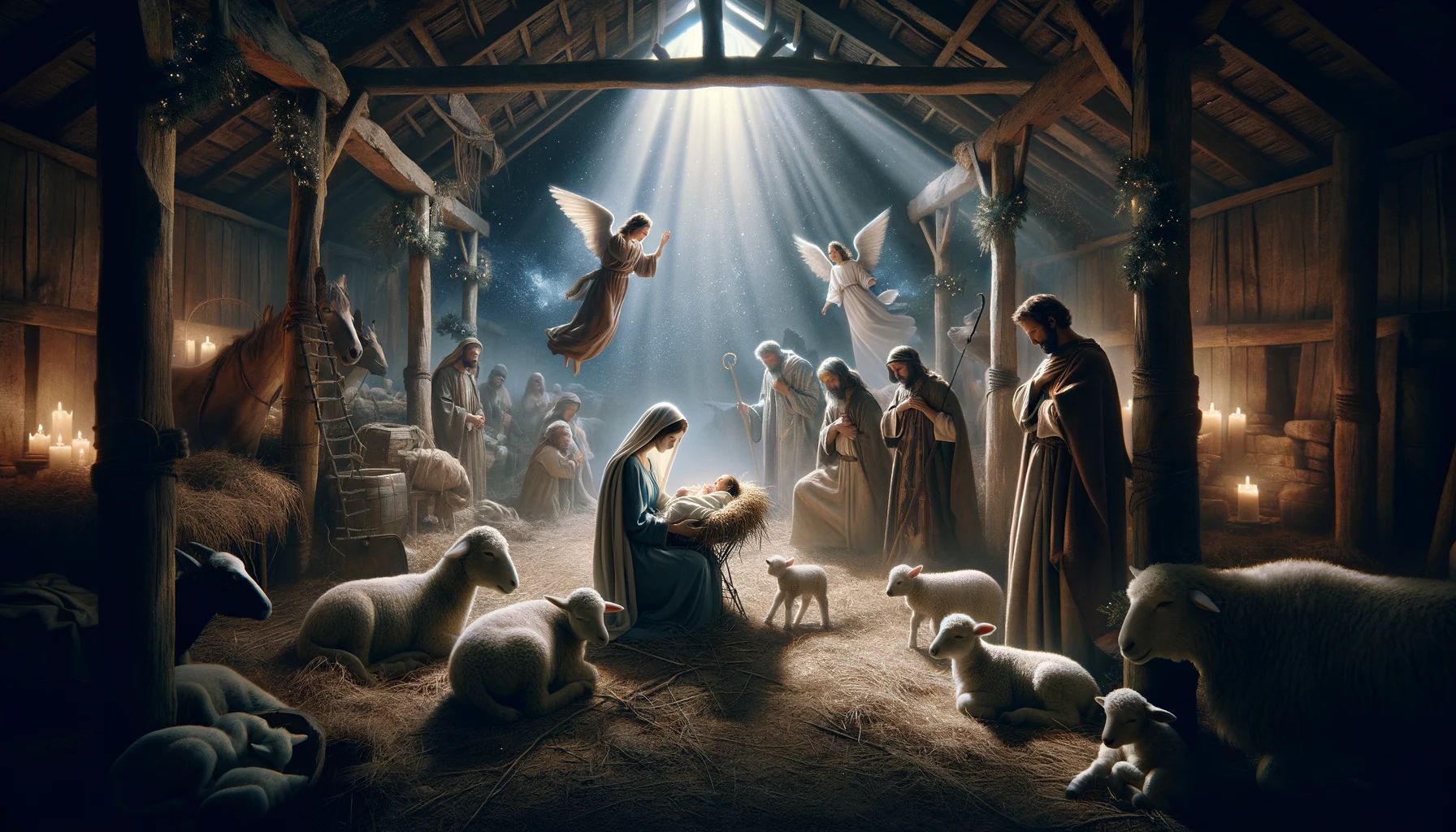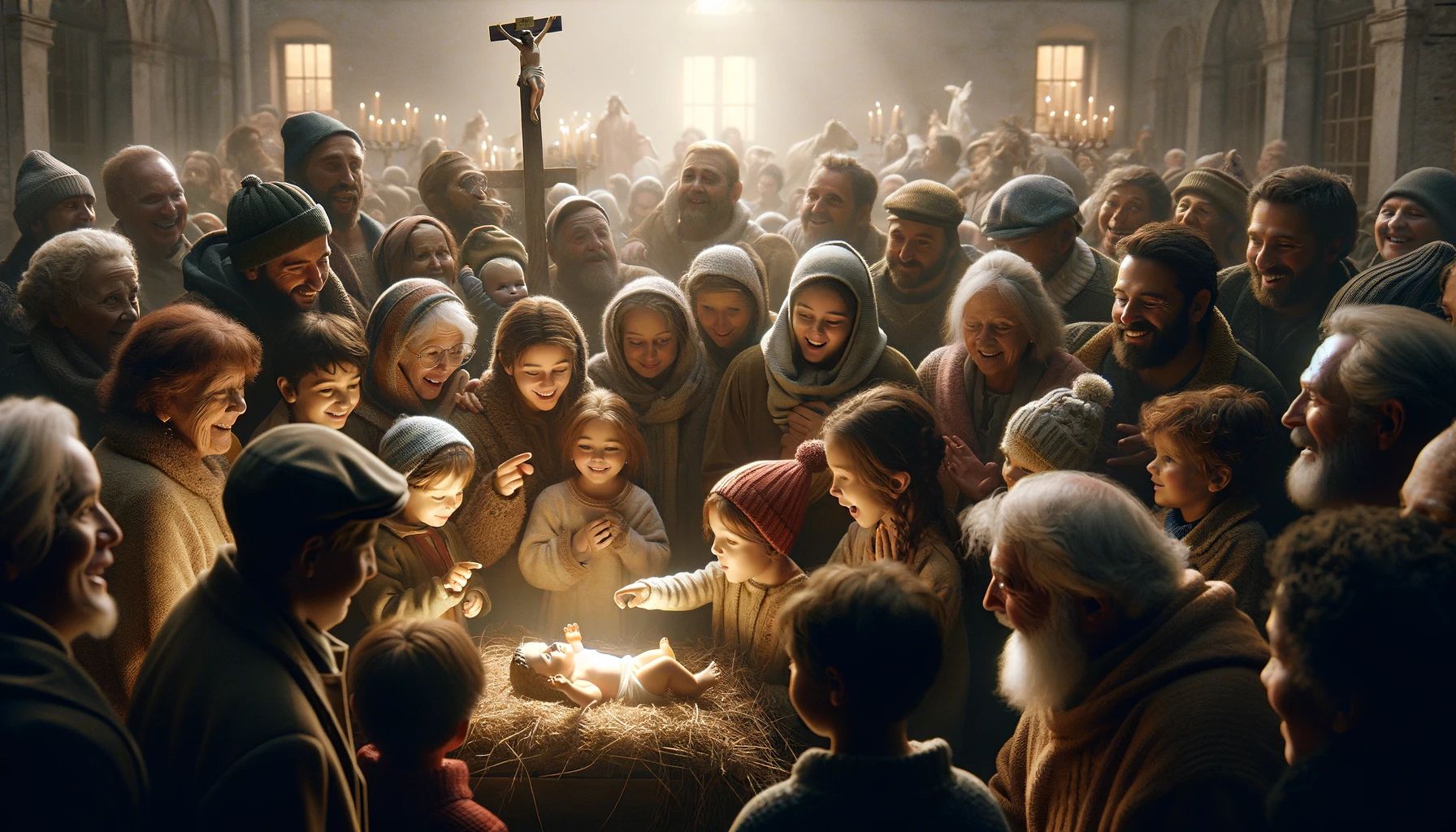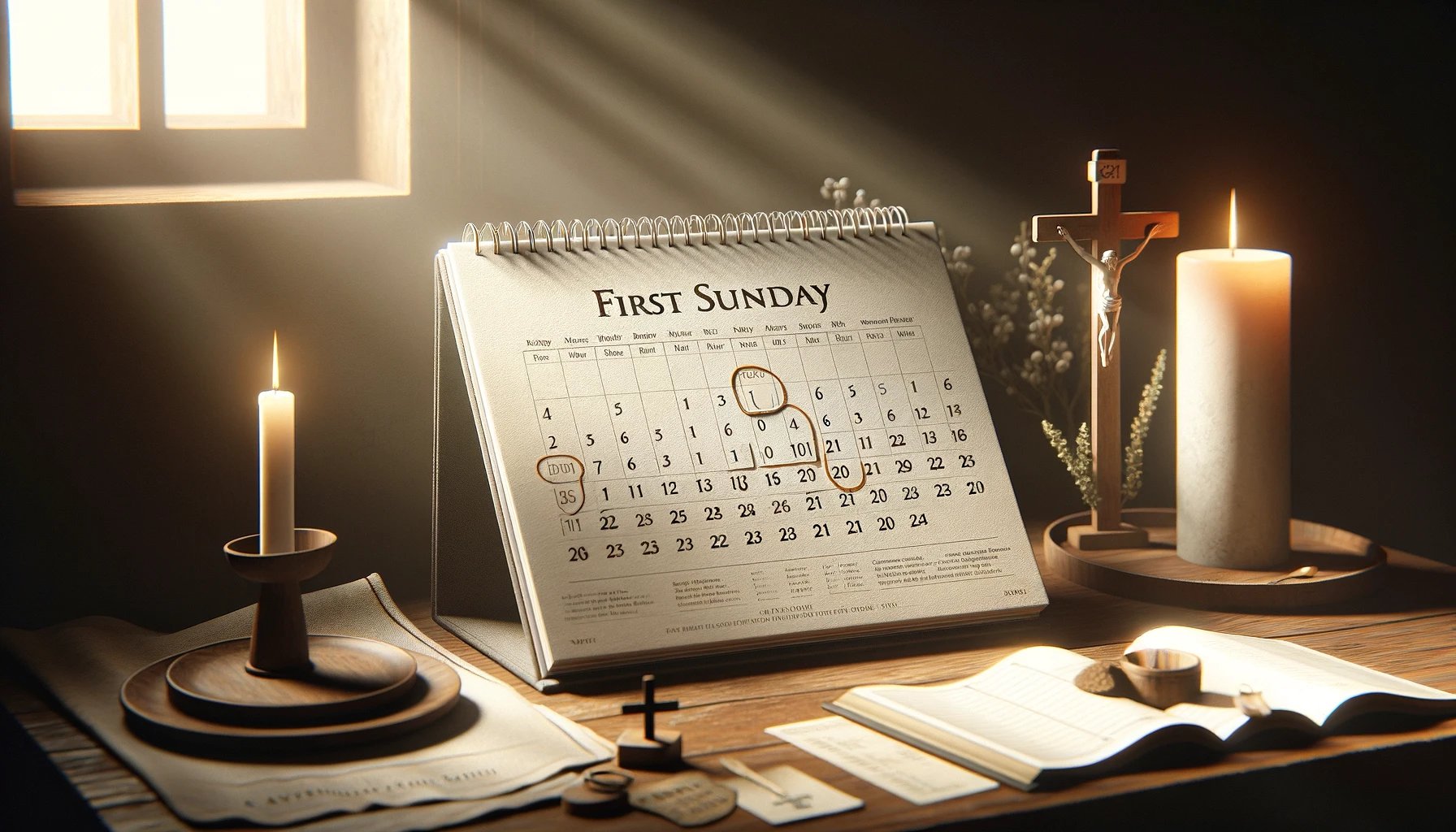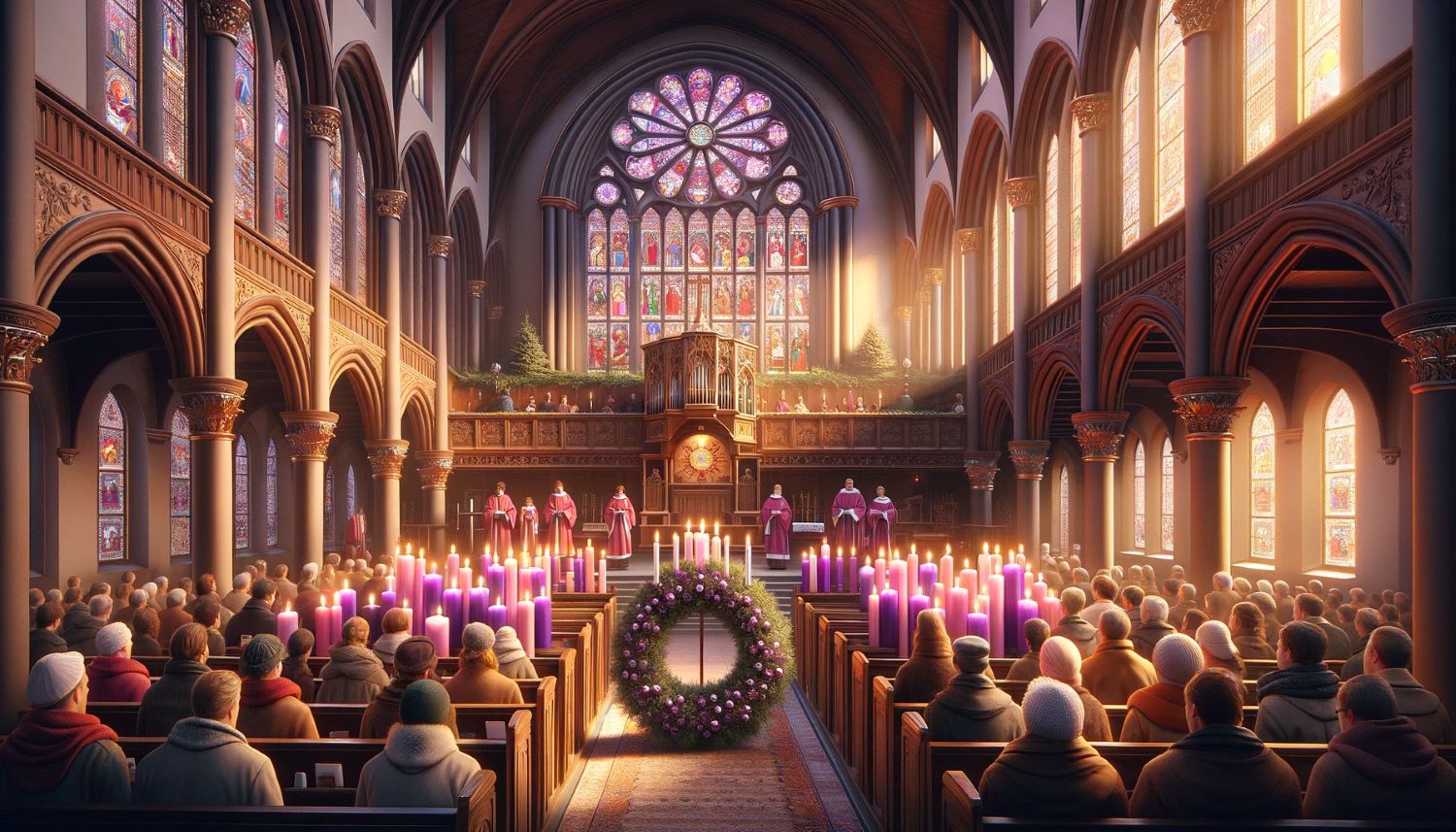Home>Special Themes>What Is The First Advent Sunday


Special Themes
What Is The First Advent Sunday
Published: February 14, 2024
Peter Smith, Editorial Director at Christian.net, combines deep insights into faith, politics, and culture to lead content creation that resonates widely. Awarded for his contributions to religious discourse, he previously headed a major organization for religious communicators, enhancing dialogue on faith's societal impacts.
Learn about the significance and traditions of the First Advent Sunday in this special-themed guide. Discover the history and customs associated with this important day.
(Many of the links in this article redirect to a specific reviewed product. Your purchase of these products through affiliate links helps to generate commission for Christian.net, at no extra cost. Learn more)
Table of Contents
Introduction
The First Advent Sunday marks the beginning of the Advent season, a time of anticipation and preparation for the celebration of the birth of Jesus Christ. It is a significant and cherished observance in many Christian traditions, serving as a period of spiritual reflection, hope, and joyful expectation. As the first of the four Sundays leading up to Christmas, the First Advent Sunday holds a special place in the hearts of believers around the world.
During this time, individuals and communities come together to embark on a spiritual journey, embracing the themes of hope, peace, joy, and love. The lighting of the first candle on the Advent wreath symbolizes the dawn of a new spiritual awakening, igniting a sense of anticipation and reverence. This tradition sets the tone for the upcoming weeks, encouraging believers to delve into the deeper meanings of faith and the profound significance of the Christmas season.
The First Advent Sunday serves as a poignant reminder of the humble beginnings of Jesus Christ, whose birth brought light and salvation to the world. It is a time for believers to pause and reflect on the timeless message of hope and redemption that Christ's arrival represents. As the world outside begins to shimmer with the festive spirit of Christmas, the First Advent Sunday invites individuals to embark on an inner journey, seeking spiritual renewal and a deeper connection with their faith.
As we delve into the significance, history, and traditions surrounding the First Advent Sunday, we will uncover the rich tapestry of beliefs and customs that have been woven into this sacred observance. Join us as we explore the profound meaning and enduring legacy of the First Advent Sunday, a time-honored tradition that continues to inspire and uplift hearts across the globe.
Read more: What Is The First Sunday Of Advent
The Meaning of Advent
Advent, derived from the Latin word "adventus," meaning "coming" or "arrival," encapsulates the spirit of anticipation and preparation for the celebration of the birth of Jesus Christ. This sacred season, observed by various Christian denominations, serves as a time of spiritual reflection, expectation, and hope. It symbolizes the period when humanity awaited the arrival of the Messiah, and it continues to hold deep significance in the hearts of believers worldwide.
At its core, Advent embodies a sense of longing and eager anticipation for the fulfillment of God's promises. It encompasses the profound belief that Christ's birth brought forth a new era of hope, salvation, and divine grace. The four weeks leading up to Christmas are imbued with the themes of hope, peace, joy, and love, each symbolized by the lighting of candles on the Advent wreath. These themes serve as guiding beacons, illuminating the path toward the celebration of Christ's birth.
Advent also serves as a poignant reminder of the humble circumstances surrounding the arrival of Jesus Christ. It invites believers to reflect on the profound humility and grace exemplified by the Holy Family, as they welcomed the Savior into the world amidst simplicity and serenity. This period of reflection encourages individuals to seek spiritual renewal and to cultivate a deeper connection with their faith, preparing their hearts to receive the transformative message of Christmas.
Furthermore, Advent fosters a sense of communal unity and shared anticipation among believers. It unites congregations and families in the shared journey of spiritual preparation, fostering a collective sense of hope and expectation. Through prayers, scripture readings, and acts of kindness, individuals come together to honor the timeless traditions of Advent, strengthening their bonds with one another and with their faith.
In essence, the meaning of Advent transcends mere anticipation for the arrival of Christmas. It encapsulates the enduring hope and profound significance of Christ's birth, inviting believers to embark on a transformative spiritual journey. As the first candle is lit on the Advent wreath, it heralds the beginning of a season filled with promise, faith, and the timeless message of love and redemption.
The Meaning of Advent encompasses the spirit of anticipation and preparation for the celebration of the birth of Jesus Christ. This sacred season, observed by various Christian denominations, serves as a time of spiritual reflection, expectation, and hope. It symbolizes the period when humanity awaited the arrival of the Messiah, and it continues to hold deep significance in the hearts of believers worldwide.
At its core, Advent embodies a sense of longing and eager anticipation for the fulfillment of God's promises. It encompasses the profound belief that Christ's birth brought forth a new era of hope, salvation, and divine grace. The four weeks leading up to Christmas are imbued with the themes of hope, peace, joy, and love, each symbolized by the lighting of candles on the Advent wreath. These themes serve as guiding beacons, illuminating the path toward the celebration of Christ's birth.
Advent also serves as a poignant reminder of the humble circumstances surrounding the arrival of Jesus Christ. It invites believers to reflect on the profound humility and grace exemplified by the Holy Family, as they welcomed the Savior into the world amidst simplicity and serenity. This period of reflection encourages individuals to seek spiritual renewal and to cultivate a deeper connection with their faith, preparing their hearts to receive the transformative message of Christmas.
Furthermore, Advent fosters a sense of communal unity and shared anticipation among believers. It unites congregations and families in the shared journey of spiritual preparation, fostering a collective sense of hope and expectation. Through prayers, scripture readings, and acts of kindness, individuals come together to honor the timeless traditions of Advent, strengthening their bonds with one another and with their faith.
In essence, the meaning of Advent transcends mere anticipation for the arrival of Christmas. It encapsulates the enduring hope and profound significance of Christ's birth, inviting believers to embark on a transformative spiritual journey. As the first candle is lit on the Advent wreath, it heralds the beginning of a season filled with promise, faith, and the timeless message of love and redemption.
The History of Advent Sunday
The history of Advent Sunday can be traced back to the early centuries of Christianity, evolving from a period of fasting and spiritual preparation into a season of joyful anticipation and hope. The origins of Advent can be linked to the practices of early Christians who sought to commemorate the birth of Jesus Christ and prepare their hearts for the celebration of Christmas.
The earliest recorded observance of Advent dates back to the 4th and 5th centuries in Gaul (modern-day France), where Christians engaged in a period of fasting and penitence leading up to the feast of Epiphany. This preparatory period, known as "St. Martin's Lent," lasted for 40 days and mirrored the Lenten season preceding Easter. Over time, the duration of Advent was extended to encompass the four weeks preceding Christmas, aligning it more closely with the liturgical calendar.
By the 6th century, the observance of Advent had spread to other regions of the Christian world, including Rome and Spain. The focus of this season shifted from strict fasting to a more balanced emphasis on spiritual reflection, prayer, and joyful anticipation of Christ's coming. The church fathers recognized the need for a dedicated period to prepare for the celebration of the Nativity, and Advent emerged as a time for believers to engage in acts of charity, almsgiving, and communal worship.
The symbolic elements associated with Advent, such as the Advent wreath and the lighting of candles, began to take shape during the medieval period. The Advent wreath, with its evergreen foliage and four candles, became a visual representation of the themes of hope, peace, joy, and love. Each week, a new candle would be lit, signifying the progression toward the arrival of Christ.
Throughout the centuries, the observance of Advent has evolved to encompass a rich tapestry of traditions and customs, reflecting the diverse cultural expressions of Christian communities worldwide. While the specific practices and rituals associated with Advent may vary among denominations, the underlying purpose remains constant: to prepare hearts and minds to receive the transformative message of Christmas.
Today, the history of Advent Sunday stands as a testament to the enduring legacy of faith, hope, and anticipation that has been woven into the fabric of this sacred season. It serves as a poignant reminder of the timeless journey undertaken by believers throughout the ages, as they eagerly awaited the fulfillment of God's promise in the birth of Jesus Christ.
The Significance of the First Advent Sunday
The First Advent Sunday holds profound significance in the hearts of believers, marking the commencement of the Advent season and setting the stage for a period of spiritual introspection, anticipation, and hope. As the first of the four Sundays leading up to Christmas, it serves as a poignant reminder of the timeless journey undertaken by humanity in anticipation of the birth of Jesus Christ.
At its core, the First Advent Sunday symbolizes the dawning of a new spiritual awakening, igniting a sense of anticipation and reverence among believers. The lighting of the first candle on the Advent wreath represents the theme of hope, infusing the atmosphere with a palpable sense of expectation and longing for the fulfillment of God's promises. This symbolic act serves as a beacon of light, guiding individuals on a transformative journey of faith and preparation for the joyous celebration of Christmas.
The First Advent Sunday also encapsulates the themes of prophecy and fulfillment, echoing the ancient prophecies foretelling the coming of a Savior. It serves as a testament to the enduring faith of generations past, who ardently awaited the arrival of the Messiah. This observance invites believers to reflect on the profound significance of Christ's birth, recognizing it as the fulfillment of divine promises and the embodiment of God's unwavering love for humanity.
Furthermore, the First Advent Sunday fosters a sense of communal unity and shared anticipation among believers. It unites congregations and families in the shared journey of spiritual preparation, fostering a collective sense of hope and expectation. Through prayers, scripture readings, and acts of kindness, individuals come together to honor the timeless traditions of Advent, strengthening their bonds with one another and with their faith.
The significance of the First Advent Sunday extends beyond the confines of religious observance, permeating the cultural and spiritual fabric of communities worldwide. It serves as a poignant reminder of the enduring message of hope and redemption brought forth by the birth of Jesus Christ, transcending time and resonating with the deepest aspirations of the human spirit.
As the first candle is lit on the Advent wreath, it heralds the beginning of a season filled with promise, faith, and the timeless message of love and redemption. The First Advent Sunday stands as a testament to the enduring legacy of faith, hope, and anticipation, inviting believers to embark on a transformative spiritual journey as they prepare their hearts to receive the transformative message of Christmas.
Traditions and Customs
The observance of the First Advent Sunday is intertwined with a rich tapestry of traditions and customs that reflect the diverse cultural expressions of Christian communities worldwide. These cherished practices serve to deepen the spiritual significance of the Advent season, fostering a sense of unity, anticipation, and reverence among believers.
One of the most iconic symbols associated with Advent is the Advent wreath, a circular arrangement of evergreen foliage adorned with four candles. Each candle represents a different theme – hope, peace, joy, and love – and is lit sequentially on the four Sundays leading up to Christmas. The lighting of the Advent candles serves as a visual representation of the progression toward the celebration of Christ's birth, infusing the atmosphere with a sense of anticipation and spiritual reflection.
In many Christian traditions, the lighting of the Advent wreath is accompanied by scripture readings and prayers, providing a sacred space for communal worship and reflection. Families and congregations gather around the Advent wreath, uniting in the shared journey of spiritual preparation as they honor the timeless themes of hope, peace, joy, and love.
Another cherished tradition associated with Advent is the Advent calendar, a special calendar used to count down the days until Christmas. Advent calendars often feature small doors or compartments, each concealing a treat or a religious symbol. This tradition not only builds excitement for the upcoming celebration but also serves as a daily reminder of the spiritual significance of the season.
Acts of charity and kindness are also integral to the observance of Advent. Many Christian communities engage in outreach programs, charitable initiatives, and acts of service during this season, embodying the spirit of giving and compassion exemplified by the message of Christmas. These acts of goodwill serve to deepen the sense of communal unity and reflect the transformative power of love and generosity.
Additionally, the music and hymns associated with Advent hold a special place in the hearts of believers, evoking a sense of reverence and joy. Advent hymns, such as "O Come, O Come, Emmanuel" and "Come, Thou Long-Expected Jesus," resonate with the themes of anticipation and hope, enriching the spiritual experience of the season.
The observance of the First Advent Sunday is a time-honored tradition that continues to inspire and uplift hearts across the globe. Through the cherished customs of the Advent wreath, calendar, acts of kindness, and sacred music, believers embark on a transformative journey of faith, preparing their hearts to receive the timeless message of Christmas.
Conclusion
The First Advent Sunday stands as a poignant herald of the Advent season, igniting the flame of hope and anticipation in the hearts of believers worldwide. As the first candle is lit on the Advent wreath, it symbolizes the dawn of a spiritual journey, inviting individuals to embark on a transformative path of reflection, unity, and joyful expectation.
Throughout history, the observance of Advent has evolved from a period of fasting and penitence to a season characterized by the themes of hope, peace, joy, and love. The rich tapestry of traditions and customs associated with Advent, including the lighting of the Advent wreath, the use of Advent calendars, acts of charity, and sacred music, serves to deepen the spiritual significance of this sacred season.
The First Advent Sunday holds profound significance, serving as a reminder of the enduring faith and anticipation that has characterized the journey of believers throughout the ages. It unites communities in a shared sense of hope and expectation, fostering a collective spirit of reverence and preparation for the celebration of Christ's birth.
As the world outside begins to shimmer with the festive spirit of Christmas, the First Advent Sunday invites individuals to embark on an inner journey, seeking spiritual renewal and a deeper connection with their faith. It serves as a poignant reminder of the enduring message of hope and redemption brought forth by the birth of Jesus Christ, transcending time and resonating with the deepest aspirations of the human spirit.
In conclusion, the First Advent Sunday encapsulates the timeless themes of anticipation, hope, and spiritual preparation, setting the stage for a season filled with promise, faith, and the enduring message of love and redemption. It serves as a testament to the enduring legacy of faith, hope, and anticipation, inviting believers to embark on a transformative spiritual journey as they prepare their hearts to receive the timeless message of Christmas.




